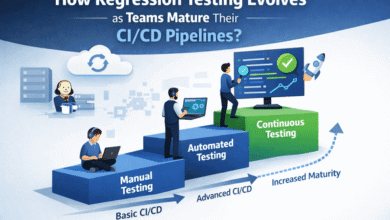From Compliance to Confidence: The Role of Cloud Security Providers in Achieving ISO 27001 and CSA STAR Certification in Singapore

Introduction
In today’s increasingly digital economy, cloud computing has become the foundation of business agility, innovation, and scalability. However, this transition to the cloud also brings heightened scrutiny from regulators, clients, and business stakeholders—particularly around how sensitive data is stored, processed, and protected. In Singapore, where cybersecurity is both a national priority and a business imperative, organizations are increasingly turning to recognized security standards like ISO/IEC 27001 and CSA STAR Certification to validate their cloud environments.
Yet achieving these certifications requires not just internal governance and IT maturity, but also the strategic support of a reliable cyber security agency singapore. These providers bring the technology stack, process discipline, and compliance frameworks necessary to transform cloud operations from risk-prone to regulation-ready.
Understanding ISO 27001 and CSA STAR: What’s at Stake?
ISO/IEC 27001 is the international standard for information security management systems (ISMS). It provides a framework for managing information risks, including people, processes, and IT systems. It’s widely recognized across industries and is increasingly becoming a prerequisite for business contracts, particularly in finance, government, and healthcare.
The Cloud Security Alliance (CSA) STAR Certification, on the other hand, is a cloud-specific certification program that builds on ISO 27001. It includes an additional layer of assurance by incorporating the CSA Cloud Controls Matrix (CCM), which evaluates how effectively a cloud provider meets specific cloud security requirements. It is particularly relevant in shared-responsibility models where trust in third-party infrastructure is vital.
In Singapore, where enterprises are expected to comply with local laws such as the Personal Data Protection Act (PDPA) and industry-specific guidelines like the Monetary Authority of Singapore’s (MAS) Technology Risk Management (TRM) Notice, these international certifications serve as both benchmarks and blueprints for robust cloud governance.
Why Certifications Matter in Singapore’s Digital Landscape
Singapore has positioned itself as a global digital hub with robust data infrastructure and cybersecurity legislation. Yet, the threat landscape continues to evolve. Ransomware attacks, insider threats, and cross-border data breaches are on the rise, and regulators are tightening expectations for data governance and protection.
Achieving ISO 27001 and CSA STAR Certification not only demonstrates cybersecurity readiness but also shows:
- Compliance with industry and governmental regulations
- Commitment to continual improvement and risk mitigation
- Enhanced trust among clients, partners, and investors
- Competitive differentiation in highly regulated sectors
However, pursuing these certifications without expert guidance is complex, time-consuming, and potentially risky. That’s why the involvement of a specialized cloud security partner becomes critical.
The Role of Cloud Security Providers in ISO/CSA Certification Readiness
A trusted cloud security provider does much more than monitor firewalls and patch vulnerabilities. When engaged strategically, they become co-architects of your compliance and risk management strategy.
Here’s how they contribute to ISO 27001 and CSA STAR readiness:
- Gap Assessment and Risk Mapping
A skilled provider begins by conducting a gap analysis of your existing security posture against the ISO 27001 controls and CSA CCM. This includes a thorough audit of your cloud assets, data flows, vendor dependencies, and user access models. From there, they map out the risk landscape and recommend tailored mitigation strategies. - ISMS Design and Implementation
For ISO 27001, building an Information Security Management System is core. Cloud security providers help define policies, risk treatment plans, asset classifications, incident response procedures, and controls aligned with your business objectives. This ISMS becomes the foundation for certification success. - Cloud Control Maturity Assessments (CCM)
To qualify for CSA STAR, you need to demonstrate maturity in key control domains like access control, application security, encryption, audit assurance, and vulnerability management. Providers bring pre-configured tools, such as security information and event management (SIEM), identity and access management (IAM), and encryption-as-a-service, aligned with the CCM. - Monitoring and Evidence Gathering
Certifications require you to demonstrate ongoing adherence to control requirements. Cloud security providers offer 24/7 monitoring, alerting, and reporting tools that generate the necessary audit trails. This includes log files, data access records, system uptime, configuration baselines, and more—making the auditor’s job easier and certification smoother. - Employee Awareness and Training
ISO 27001 mandates that employees be aware of their roles in protecting information. Cloud providers often conduct awareness programs, phishing simulations, and access hygiene campaigns as part of their managed services. - Documentation and Auditor Support
From control mappings to security policies and compliance checklists, a certified partner helps maintain detailed documentation for certification audits. They also coordinate directly with third-party auditors and certification bodies, ensuring transparency and accuracy throughout the process.
Case Study: Financial Services Firm Achieves CSA STAR with Local Partner
A Singapore-based fintech startup operating in cross-border remittances recently embarked on a journey to achieve CSA STAR Certification. With compliance mandates from the MAS and growing investor scrutiny, the firm knew it needed expert support.
Partnering with a local cloud security provider, the company implemented a multi-cloud governance strategy, introduced centralized log monitoring, adopted encryption policies, and trained all employees on phishing awareness. Within six months, the firm achieved ISO 27001 certification. The additional CSA STAR Level 2 was secured shortly after by leveraging pre-built frameworks provided by their partner.
As a result, the firm not only met MAS TRM requirements but also gained faster onboarding with institutional clients who demanded certified infrastructure.
Selecting the Right Cloud Security Partner in Singapore
When selecting a cloud security service provider in Singapore, it’s essential to consider more than just technical capabilities. Look for:
- Proven experience in guiding companies through ISO/CSA certifications
- Local compliance knowledge (e.g., PDPA, MAS TRM, Healthcare Cyber Hygiene Guidelines)
- Multi-cloud or hybrid cloud support
- 24/7 SOC (Security Operations Center) availability
- SLA-backed service guarantees
- References from clients in similar industries
The right partner should act as an extension of your internal IT/security team, not just a vendor.
Beyond Certification: Building a Culture of Continuous Compliance
Achieving ISO 27001 or CSA STAR isn’t the end goal—it’s the beginning of a continuous improvement cycle. Cloud security providers help you stay compliant even as your infrastructure evolves. They do this by:
- Running monthly audits and risk reviews
- Updating documentation with each cloud service change
- Automating patch management and backup testing
- Supporting regular penetration testing and incident drills
- Advising on new regulations or control frameworks
This proactive approach moves your organization from a compliance-first mindset to a confidence-led security culture—where cloud environments are not just defensible but resilient.
Conclusion
As Singapore continues to lead Southeast Asia in digital transformation and cloud adoption, regulatory expectations and cybersecurity risks are only intensifying. Achieving certifications like ISO 27001 and CSA STAR isn’t merely a check-the-box exercise—it’s a strategic advantage that builds trust, unlocks partnerships, and protects your organization from evolving threats.
However, navigating these frameworks alone is risky and inefficient. That’s why many forward-thinking businesses are partnering with experienced cloud security experts to accelerate and simplify their journey. A cloud security service provider in Singapore not only helps you meet certification requirements but empowers your team with tools, processes, and confidence to operate securely and compliantly in the cloud.




